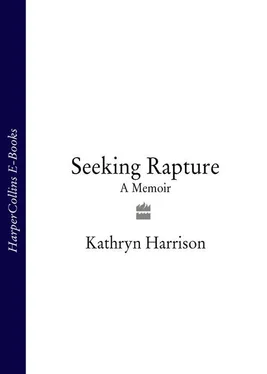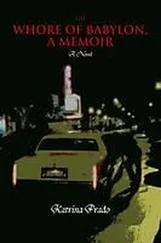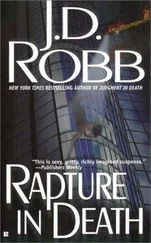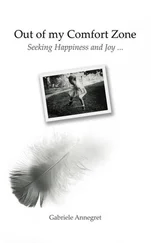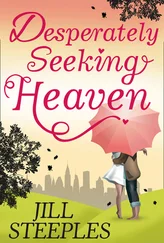As a child, I spent many hours staring at the tavern’s tiny furnishings, at once seduced and bewildered by the very nature of bas-relief, neither flat picture nor free sculpture, a dollhouse enduring an uneasy metamorphosis from three dimensions to two. Before we had children, I moved the tavern from closet to basement to guest room and back to closet, never knowing what to do with it until our children showed me.
‘Take it down! I want to look at it up close!’ one of them will say. The request is never more avid than when the children are ill, and I can remember exactly how fever enhanced the little row of frying pans hung over the stove, gilded the flowers painted on cupboard doors the size of my thumbnail. I can remember, in the glaze and glitter of their feverish eyes, but I can no longer feel the luxury of benign childhood illness, of recoveries uncompromised by meetings, deadlines, chores.
From experience, I know that if my children are not sufficiently entertained they will escape the confines of bed, and I supply toys, rescind the TV laws, and bring them from their room into ours. In our family, sick children inevitably end up in the parental bed, an indulgence intended to compensate for an ailment serious enough to mandate bed rest: a way of separating horizontal day from night, a chance to command the empire of our tall, king-size bed, at whose foot I prop the tavern.
‘Why,’ Walker asks, as I asked my grandfather, ‘are the flames right on the pot?’ A tiny black kettle hangs in the kitchen over kindling the size of matchsticks, its underside painted with tongues of red and yellow and orange.
‘Because,’ I say, not finishing the answer any more than my grandfather did – in 1904 they didn’t have cellophane for fake fires.
Not only my own childhood is recapitulated in our children’s bedroom; their father’s is here as well. Along the top shelf of the bookcase are twenty-nine bottles and nine glass inkwells, anywhere from ninety to a hundred and twenty years old. Clear, clouded, blue, green, amber – old enough so that none are actually colorless, so that even plain glass has acquired a purple tint. Though they were dug from old dumps, none are chipped or broken. There are hundreds of these bottles in our house, most packed away, all of them together representing thousands of hours of my husband’s childhood, countless afternoons spent on his knees, alone or with a friend, excavating the past.
Time continues to possess and confound and mystify us. It passes, of course, with a relentlessness familiar to all grownups, but never more than when compared to the clock of childhood, with its burden of hours to be wasted, a burden compounded by the as yet misperceived vagaries of hour hands and minute hands and calendars. Questions of measurement include: When will it be Christmas, summer, Friday, my birthday? Dinner? Young children float on an ocean unmarked by adult dates and appointments. Sarah stands at the front door, dressed to go, whole hours before a birthday party. Walker looks out the window of the car, uttering ‘Are we there yet?’ while still in our neighborhood. He cannot imagine that his parents treasure long car rides for their enforced enclosure, their near-idleness.
But childhood has many hours that must be filled. Is this one reason for our curiously misguided idealization of it? Waiting for important phone calls, we read professional journals while riding our exercise bikes. Dinner cooks slowly in the Crock-Pot while I fold the laundry, catch the lead stories of the six-thirty news, and police the crayon situation (she takes his reds, he breaks her blues). How different from the time when we drooped over banisters, loitered limply at the back door, moaned, ‘But I have nothing to do. I’m so, so, so bored.’
While our children wait to be older, imagining perhaps that grown-up busyness is a measure of happiness and freedom, they are amused by Barbies and blocks and crayons and tiny cars, by trains, stuffed animals, picture books, dress-up clothes, beads, stencils, pipe cleaners, fire engines, balls, balloons, putty, puzzles, and puppets. All of these, in every state of disrepair (Madison Avenue Barbie reduced to a gruesome paraplegic, her hair matted into dreadlocks), form a tide that washes over the surfaces of their room. Beds, tables, chairs – nothing is uncovered, clutter is fierce, the room infrequently tidy. Still, ‘What a great room!’ people say when they enter for the first time. The walls are decorated with Babar and Mickey Mouse and Beatrix Potter, in determined contrast to my own room as a child, with its one print, entitled In Disgrace , of a little girl, face to the wall, blue sash drooping, socks rumpled, sad-eyed puppy at her scuffed heels. Flanking this print were two framed prayers by Mary Baker Eddy, the founder of Christian Science. Of a troubling and final nature, each seemed to indicate that I was not long for this world.
As a small child, I was high-spirited, careless, clumsy, and often in ‘Coventry,’ my British grandparents’ way of saying ‘the doghouse.’ Even without the solace of canine sympathy, I knew myself to be that painted, rumple-socked girl sprung to life. Who needed to tell me that I was my mother’s disgrace? She was pregnant and unmarried the summer after she graduated from high school, and every look she gave me was one of regret. My mother’s parents reared me to be all that she was not – responsible and studious and steady – and they decorated my childhood bedroom to exclude the whimsy revealed in photographs of my mother’s room, with its three dollhouses and trunks of dress-up clothes. Before I could read, I had a desk, a bookcase, and edifying messages on the wall – none of which helped to keep me out of the trouble I was bound to find.
Our daughter was still in the crib when I bought the giant Mickey Mouse decal, cut him out of the vast sheet of adhesive-backed vinyl, cut out each one of the rain of yellow stars that falls around him, placed them all with care as she watched from behind the polished bars of her crib. By design, the room is filled with happy nonsense, and yet Sarah seems already the studious child I was meant to be. ‘I’m going to my office,’ she says of her own art desk, a red-and-yellow-and-blue-and-green one, whose surface includes a light box for tracing. Sometimes she traces pictures, more often words, sentences. Her long hair falls around her while she works, hunched over in concentration, the light under her carefully moving pencil shining out through the dark strands.
‘What are you doing?’ I ask.
‘My work,’ she says.
We redress the hurts of our own childhoods; we do it even with abundant evidence that our efforts rarely matter. Last Christmas, in the guise of Santa Claus, I bought Walker an inflatable clown. Three feet tall and weighted with sand at his feet, he is the type of long-suffering companion who, when hit, pops back up. Having struggled under the seen-and-not-heard rule that hopes to cure little girls of untoward zest, I found the clown irresistible. But the only time our little boy pushes him over is to use him as an inflatable log, a kind of bench. ‘What’s the matter with him?’ he asks me. ‘He won’t lie down.’
‘Here,’ I say. ‘If you hit him, he pops up again.’ I demonstrate. Walker gives the clown a casual smack, shrugs. Every once in a while, passing through the children’s room, I push the clown over, watch him rise cheerfully, inviting another assault.
I find that I come into the children’s room when I am alone, anxious. Sarah and Walker are in school, the house is quiet. I put off work to sit in the chaise or lie on one of the beds that are so short I must curl, knees drawn up, to fit. Sometimes I tidy the room. If I can locate all the pieces of a board game, find both the left and the right of Barbie’s pair of pink plastic pumps, my worries are somehow lessened by imposing order on chaos – even this happy chaos – by my ability to find something we assumed was lost. I especially like to complete the puzzles, whose pieces are always scattered. Colin’s mother gave each of the children a wooden one, featuring a child of his or her own gender standing undressed before a closet. The little boy has interchangeable trousers and shirts and pairs of shoes, seven of each, and the little girl can try on skirts, jackets, dresses, and shoes.
Читать дальше
